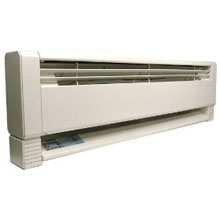
Electric Heaters Resources
- Home
- Efficient Electric Heaters
- Electric Heaters for Different Rooms
- Outdoor Electric Heaters
- Portable Electric Heaters
- 12 Volt Electric Heaters
- 220 Volt Heater
- 3 Phase Electrical Heater
- Above Ground Pool Electric Heater
- Antique Electric Heaters
- Baseboard Electronic Heaters
- Bathroom Electric Heaters
- Best Electric Heaters
- Buy Electric Heaters
- Car Electric Heaters
- Ceiling Electric Heaters
- Ceiling Mounted Electric Heaters
- Ceramic Electric Heaters
- Cheap Electric Heaters
- Commercial Electric Heaters
- Compact Electric Heaters
- Convection Electric Heaters
- DC Electric Heaters
- Economical Electric Heaters
- Efficient Electric Heaters
- Electric Heater Reviews
- Electric Heater With Thermostat
- Fahrenheat Electric Heaters
- Fan Forced Electric Heaters
- Fireplace Electric Heaters
- Flat Panel Electric Heaters
- Floor Electric Heaters
- Forced Air Electric Heaters
- Free Standing Electric Heaters
- General Electric Heaters
- Greenhouse Electric Heaters
- Halogen Electric Heaters
- Hanging Electric Heaters
- Heavy Duty Electric Heaters
- High Efficiency Electric Heaters
- Home Electric Heaters
- In Wall Electric Heaters
- Indoor Electric Heaters
- Industrial Electric Heaters
- Infrared Electric Heaters
- Infrared Electric Heater Reviews
- Large Electric Heaters
- Large Room Electric Heaters
- Low Wattage Electric Heaters
- Marine Electric Heater
- Mini Electric Heaters
- Non Electric Heaters
- Oil Electric Heaters
- Oil Filled Electric Heaters
- Overhead Electric Heaters
- Panel Electric Heaters
- Patio Electric Heaters
- Plug in Electric Heaters
- Process Electric Heaters
- Radiant Electric Heaters
- Recessed Electric Heaters
- Residential Electric Heaters
- RV Electric Heaters
- Safe Electric Heaters
- Small Electric Heaters
- Small Portable Electric Heaters
- Solar Electric Heaters
- Spa Electric Heaters
- Space Electric Heaters
- Swimming Pool Electric Heaters
- Toe kick Electric Heaters
- Tubular Electric Heaters
- Types of Electric Heaters
- Used Electric Heaters
- Vintage Electric Heaters
- Wall Electric Heaters
- Warehouse Electric Heaters
- Electric Heaters FAQ
Baseboard electronic heaters
With different types of heaters available in the market, it is difficult to choose the one that you needed. The details below gives a simple understanding about baseboard electronic heaters and the advantages of using it.
How does it work?
The functions of the baseboard electronic heaters are similar to the hydronic heaters. Both apply the convection theory in which warm air rises up and cool air that is much denser is drawn down. The main different between the baseboard electronic heater and the hydronic heater is that the baseboard electronic heaters obtain source from the heating elements known as metal fins instead of water.
The resistors that are installed in the heater blocks electric current from passing through and generates heat by turning the electricity into heat. And the heat is then spread through the heater.
Is it expensive?
The price for a baseboard electronic heater is usually not costly. The price range is often set between $125 and $300 depending on the complexity of the heater but it is still approximately 5 times cheaper than getting a hydronic heater.
Some tips before purchasing
- A well-performing baseboard electric heater comes with a good quality. Before making any purchase, look for those that has been run through various laboratory test and has been certified by trusted authorities. There are certain specifications that the manufacturers must meet before they can launch and sell the heater in the market. This is to ensure the safety of the heater to be used by consumers like you.
- Choose a heater based on the room size where you want to install the heater in. As the heater comes in different unit length or size ranging from a small 2” unit to a much larger 10” unit, it is more feasible to get one that is appropriate to the room size the heater is set to be in. A larger room will need a larger heater while a smaller one can make do with a smaller heater as it won’t take long to heat up a small room.
Advantages of using a baseboard electric heater
- Low cost. Baseboard electronic heaters run using electric rather than natural gas which is expensive and can cost you a bomb especially during the long cold winters. Moreover, there should be no need for seasonal repairs and the installation fee is also quite cheap.
- Space saving. Different from the furnace heaters, baseboard electronic heaters come in different sizes that you can choose according to your own needs. It is usually installed along the base of the wall to ensure the efficiency of the convection process. It is also less bulky and you do not have to pay for any ductwork, insulation and maintenance.
- Ease of Maintenance. You do not have to pay a bundle towards maintaining the heater. All you need to do is to clean it occasionally with a little bit of light dusting.
- Safe and cause less harm to the environment. The baseboard electric heaters do not produce flame therefore, you do not have to worry about any fire hazards. It is alright to leave it all night without worrying about your house being burnt down! Moreover, as it runs on electricity, it does not release any harmful carbon monoxide into the air.
- Finally, it keeps your skin from drying out. As it does not rely on vents and ducts, it does not dry out the air that much and there is lesser possibility of having dry skin caused by the heater.
